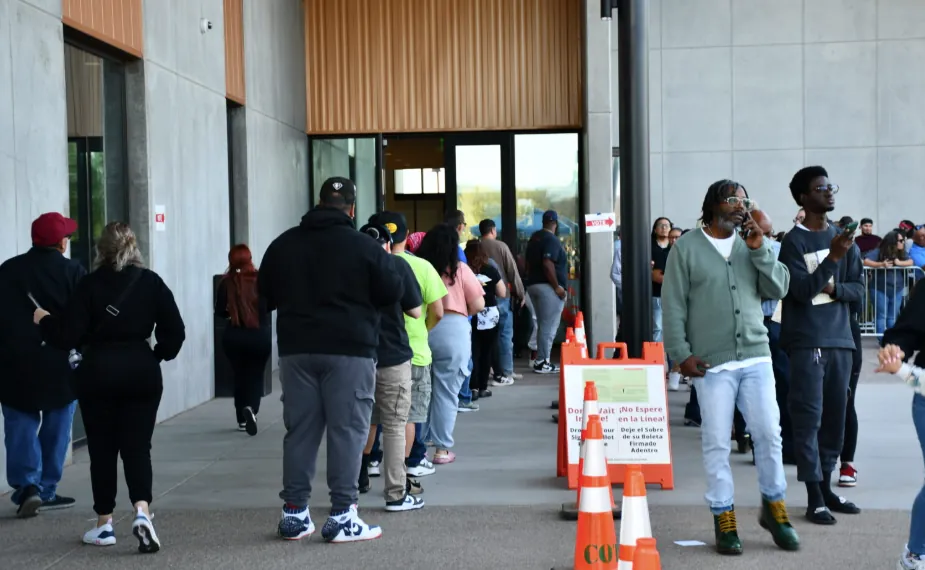A federal judge has dismissed a Republican-led lawsuit seeking to remove over 1.27 million voters from Arizona’s registration rolls, ruling that the plaintiffs lacked sufficient legal standing to sue.
Arizona Republican Party Chairwoman Gina Swoboda, Arizona Free Enterprise Club President Scot Mussi, and former Secretary of State candidate Steven Gaynor alleged that Secretary of State Adrian Fontes violated the National Voter Registration Act (NVRA) by failing to adequately maintain voter rolls. They claimed this inaction allowed ineligible voters—potentially numbering between 500,000 and 1.27 million—to remain registered, diluting the votes of eligible voters and costing the Republican Party resources for voter outreach.
The lawsuit drew its figures from voter registration confirmation notices sent to Maricopa County residents. While over 130,000 voters were removed from the rolls after failing to respond, hundreds of thousands who didn’t reply remained registered, according to the plaintiffs.
Additionally, the Republicans argued that voter registration rates in several counties, including Apache and Navajo, appeared implausibly high when compared with census data.
U.S. District Court Judge Dominic Lanza, in a 19-page decision, sided with Fontes, finding the Republicans’ claims legally insufficient. He emphasized that to establish standing, plaintiffs must demonstrate a direct and specific injury—not merely dissatisfaction with government actions.
Lanza rejected the trio’s argument that their votes were diluted by potentially invalid ballots. He pointed out that the injury they alleged relied on a speculative chain of events: ineligible individuals casting ballots, those ballots being counted, and enough instances occurring to affect election outcomes.
“Their claims are based on hypothetical scenarios without evidence to back them,” Lanza wrote, adding that invalid votes alone are insufficient to support claims of vote dilution. Moreover, any such dilution would affect all voters equally, negating grounds for personal injury claims.
The judge also dismissed other arguments, including that the plaintiffs might lose confidence in the election system and refrain from voting in the future. He noted that self-inflicted harm, like choosing not to vote, cannot be used to create legal standing.
The Republicans argued that Fontes’ alleged inaction forced their party to spend additional resources on voter outreach and mobilization. However, Lanza ruled that an organization’s choice to expend resources in response to a grievance does not equate to legal injury.
“Organizations cannot claim standing simply by opposing a government action and choosing to spend resources against it,” he concluded.
This ruling underscores the difficulty of establishing legal standing in voter roll cases, especially when claims rest on speculative harms. The decision is a significant blow to Arizona Republicans’ efforts to challenge the state’s voter registration maintenance practices.
For now, Secretary of State Adrian Fontes and his office can continue their current voter list maintenance procedures without immediate legal challenges from this lawsuit.

